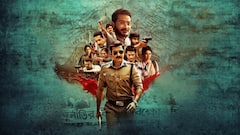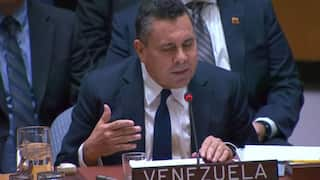'Hijacking Kaunsi Badi Baat Hai...': When Nepal PM Bhattarai Said IC-814 Hijack Was No Big Deal
If there is one country with which India needs to make a fresh beginning, it is Nepal — KV Rajan writes in Kathmandu Chronicle, the book he co-authored with Atul K Thakur. Read an excerpt:

The hijacking was a stunning blow to Nepal’s image and self-esteem, as well as to the goodwill it had always enjoyed in the eyes of the people of India. New Delhi, for its part, demonstrated a certain recklessness in encouraging the demonization of Nepal through the statements and insinuations of Indian leaders, clearly to divert attention from the government’s own mismanagement of the episode. I found this to be particularly regrettable at a time when the Nepalese authorities at operational levels and indeed at the highest level were providing excellent cooperation to their Indian counterparts in identifying the hijackers (none of whom were Nepali, although in his initial statements to the media, Jaswant Singh let it be known that this was the case) and unravelling the details of the entire episode. When I pointed out to New Delhi that there was growing resentment in Kathmandu about the disproportionate blame being placed at Nepal’s door, the response was that India had to counter Pakistani propaganda that the Research and Analysis Wing (R&AW) had cooked up the entire hijacking in order to malign Pakistan!
Later, there was more evidence of fairly crude attempts to discredit Nepal as much as possible. I was asked by New Delhi to facilitate access inside all areas of Kathmandu airport for one of our well-known media channels, ostensibly to project Nepal in a good light after the damage done by earlier official statements and media reports. I requested Prime Minister K.P. Bhattarai’s intervention to get the necessary permissions; the Indian TV reporters spent a couple of days interviewing airport personnel and taking shots of various restricted areas. To everyone’s astonishment, the ‘breaking news’ story that came out a few days later was that even several days after the hijacking, security arrangements were so poor that reporters from the TV channel had succeeded in moving around undetected even in the most sensitive areas!
My protests to the ministry and the channel did not cut much ice—the atmosphere was too charged. But the longer-term cost of the breakdown of trust and goodwill at the people-to-people level, which has always been the foundation of the much-vaunted special relationship with Nepal, was possibly ignored.
In the event, the hijacked plane ended up in Kandahar in Afghanistan via Dubai, and the Government of India chose to negotiate with the hijackers to secure the release of the passengers. Jaswant Singh went to Kandahar accompanied by the three terrorists whose release from Indian prisons was part of the bargain, and came back to India with the passengers, one of whom had been killed by the hijackers at Dubai to show that they meant business. The three notorious terrorists released by India were: Maulana Masood Azhar, founder of Jaish-e-Muhammad, which had a role in the attack on the Indian Parliament in 2000, the Mumbai attacks of 2008 and others; Ahmed Omar Saeed Sheikh, involved in the murder of Daniel Pearl and 9/11 attacks in the US; and Mushtaq Ahmed Zargar.
There was relief at the end of the long ordeal for the passengers and their families in India and elsewhere, but also much criticism of the manner in which India had handled the crisis, especially in permitting the plane to take off from Amritsar when special troops were ready to storm it. Even before the drama ended on 30 December, an Indian investigating team in Kathmandu with excellent cooperation from their Nepalese counterparts (with some discreet higher-level help at our request) had unearthed the full details of the identity of the hijackers, the support that they received from D&Co. from beginning to end, direct local involvement of the Pakistan embassy and ISI, and accomplices in India.
The hijacking was carefully timed to seriously damage India– Nepal relations in addition to other objectives. In speedy joint investigations on which King Birendra’s confidants helped behind the scenes, the involvement of Pakistan was again exposed. All four hijackers—Sunny Ahmad Qazi, Shahid Saeed Akhtar, Zahoor Ibrahim Mistry and Farooa Abdul Aziz Siddiqui—were Pakistani nationals and members of the terrorist outfit Harkat-ul-Mujahideen (HuM). The hijackers were given weapons by Pakistani diplomats who had access to the departure lounge just before the flight took off. Eventually the ISI station chief in Nepal working under diplomatic cover, who was directly implicated, was arrested and deported. And, the terrorists exchanged for the release of the passengers were taken off the plane at Kandahar and driven off to Pakistan instead of being arrested.
The degree of India–Nepal cooperation, multiple arrests of Pakistani nationals and deportation and exposure of Pakistani diplomats within a five-year period shook D&Co. out of its conviction that it could violate Nepalese territory with impunity. The brashness and confidence with which it had conducted its anti-India activities from Nepal until then disappeared. ISI operatives became more circumspect and cautious in the knowledge that retribution from Nepalese authorities for any illegal activity they were caught undertaking would be forthcoming. The Nepalese response, under pressure from India on one hand and full cooperation from it on the other, had sent a clear message to the ISI—it would not tolerate another hijacking or other terrorrelated activities on its soil.
But the Hrithik Roshan riots of December 2000 were a clear signal that D&Co. was not about to give up. They were still bent on creating tensions in India–Nepal relations and major concerns for India. The informal signals conveyed by the Palace were that political parties were not able or willing to take serious action in time to prevent such incidents or at least contain the damage once they had taken place. My successor in Kathmandu, Deb Mukharji, wrote that he had shared his assessment with Prime Minister Vajpayee that Nepalese prime minister Girija Prasad Koirala and his government could have managed the situation better to prevent it from going out of control, that this disappointment was conveyed by Vajpayee to his Nepalese counterpart, and Koirala expressed his unhappiness to the ambassador for having shared such an assessment with Delhi!
Unfortunately, the communication style even of leaders friendly towards India tended to confirm this impression. For example, I recall being present when PM Bhattarai was surrounded by Indian press members who wanted to have his take on the IC 814 hijacking. In his bantering style Bhattarai laughed and said, ‘Aare bhai, hijacking kaunsi badi baat hai? Sab jagah hijacking hota hai [What’s the big deal about hijacking? It happens everywhere].’ This obviously went down very badly with the Indian public, who had been shaken to the core by the incident. I recall Deputy National Security Adviser Satish Chandra calling me up from Delhi to convey his shock and dismay at such an insensitive remark by a Nepal PM.
The Pakistan-based group had cultivated a number of Nepalese leaders by providing them with funds and various other forms of assistance. Rumours—not always without substance—began to surface about secret but separate contacts between political leaders of the major parties as well as the Palace with Maoist leaders in India, which were in the know of if not encouraged by, India, with the objective of persuading the Maoists to give up violence and their radicalism and join mainstream politics for a win-win scenario in Nepal.
Excerpted from Kathmandu Chronicle: Reclaiming India-Nepal Relations, with permission from Penguin Random House India.
[Disclaimer: The opinions, beliefs, and views expressed by the various authors and forum participants on this website are personal and do not reflect the opinions, beliefs, and views of ABP News Network Pvt Ltd.]
Related Video
Sambhal News : Electricity Department Investigates SP MP Ziaur Rahman Barq’s Residence Over Suspicious Meter Reading
Top Headlines































